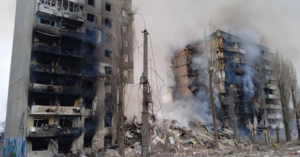In battle nothing is ever as good or as bad as the first reports of excited men would have it,” remarked William Slim, a celebrated British field marshal in the second world war. From the moment that Russian troops crossed into Ukraine on February 24th this year, pundits offered sweeping pronouncements about the future of war.
The death of the tank was declared on the basis of snatched video footage. Turkish drones were hailed as unstoppable game-changers. Western anti-tank weapons were thrust into an early starring role. Now, nine months into the war, more considered reflections are emerging. There is much that Western armed forces can learn.
On November 30th the Royal United Services Institute (RUSI), a think-tank in London, published a detailed report on the lessons from the first five months of the war, a period when Ukraine was largely on the defensive.
Could Turkey use a false flag attack to start a war with Greece? – Analysis
The authors—including Mykhaylo Zabrodsky, a Ukrainian lieutenant-general, and a pair of RUSI analysts—enjoyed extensive access to Ukrainian military data and decision-making. Their findings paint a more complex picture than the popular notion of a Russian horde coming unstuck in the face of nimble Ukrainians.
Read more: Economist
Ask me anything
Explore related questions





